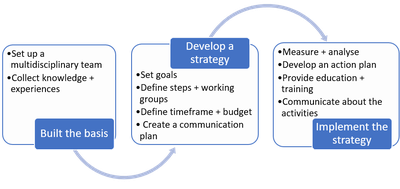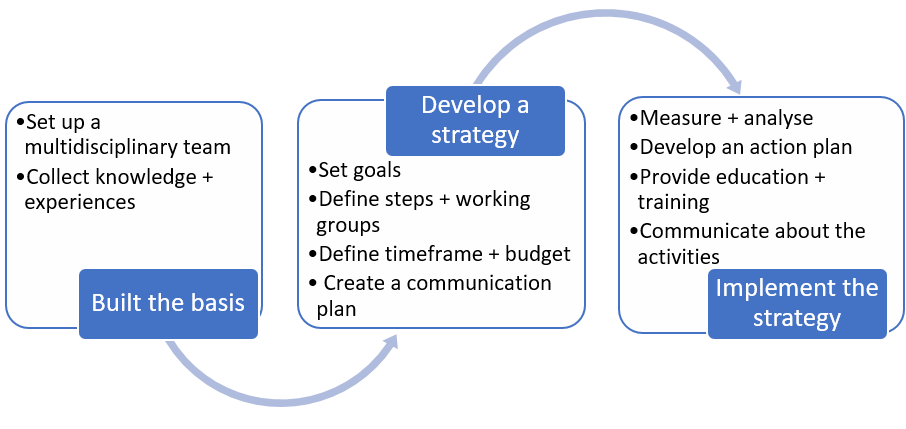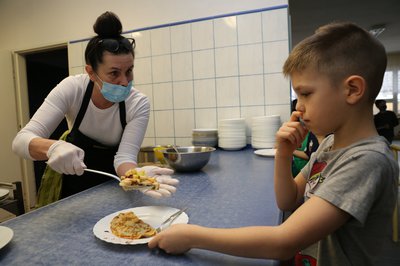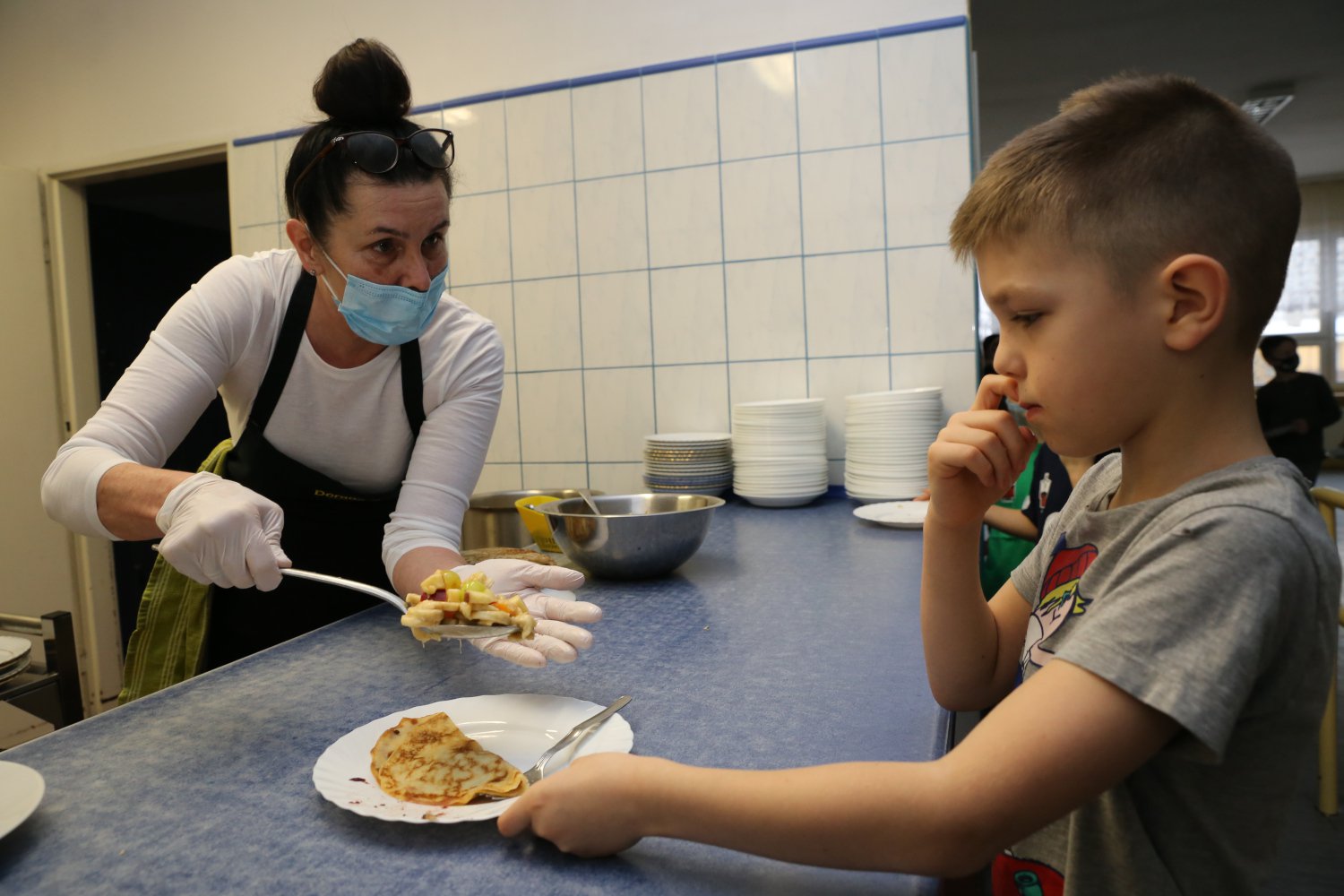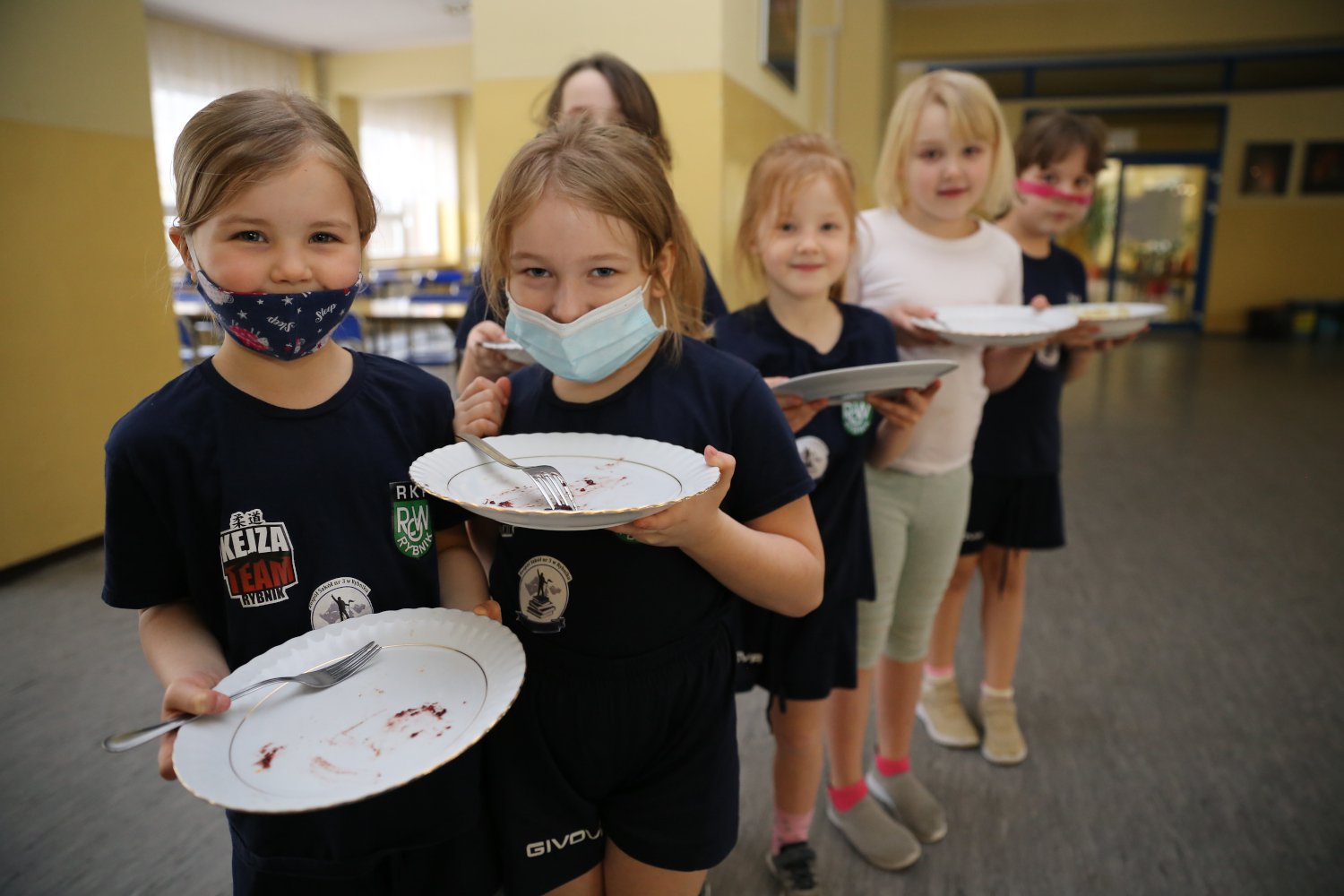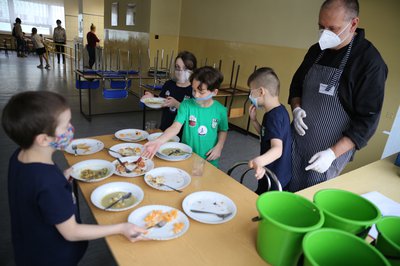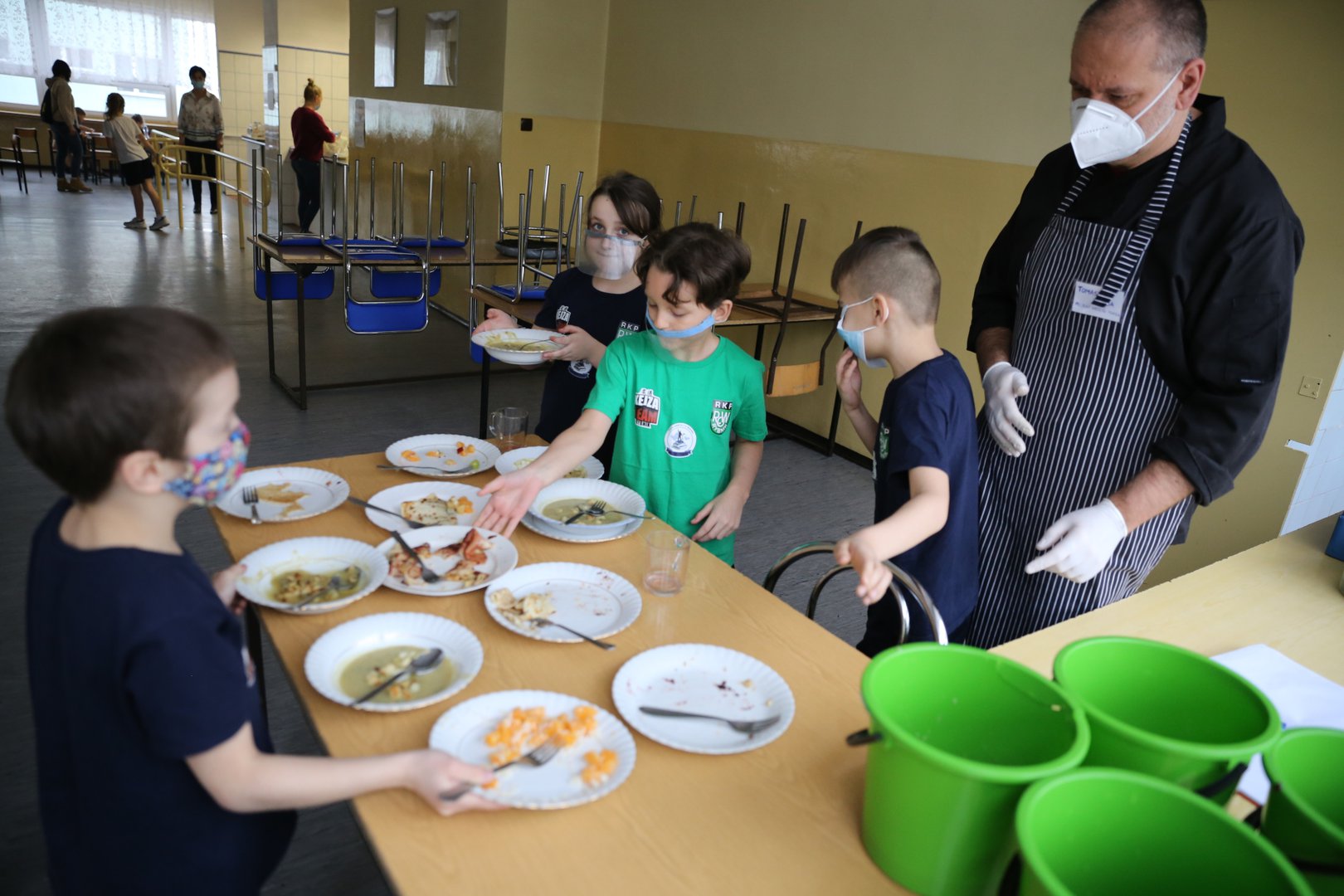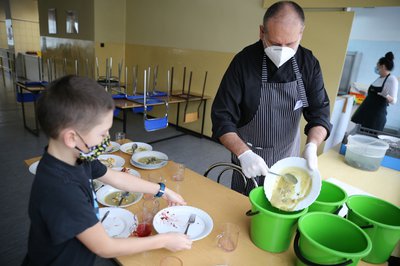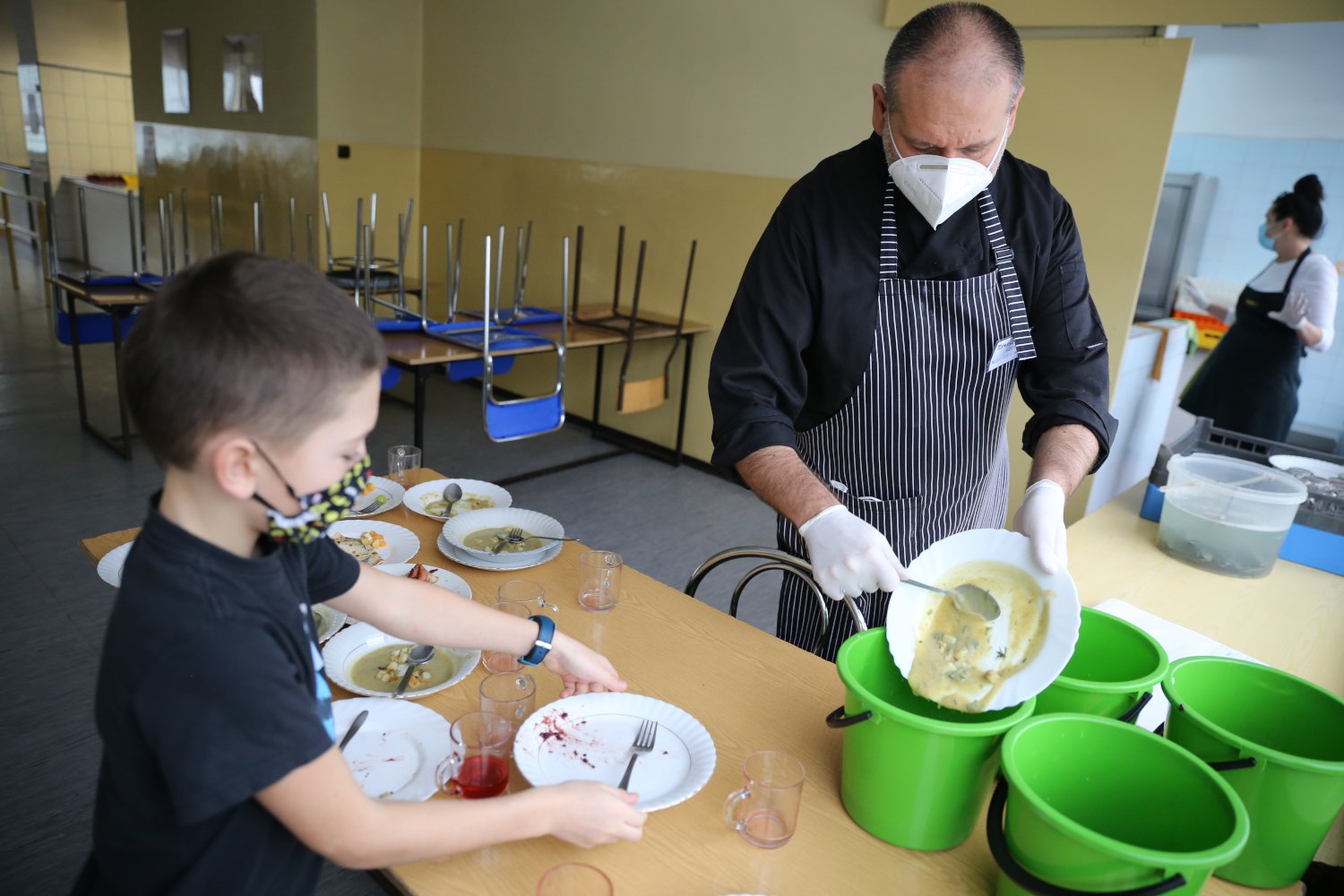Necessary Steps
- Decide to formulate and implement a strategy to reduce food waste in public institutions in your municipality. The development of the strategy is supported by a multidisciplinary team.
- Partner up with relevant scientific institutions to ensure access to expertise and support for organizing a multidisciplinary team of scientists, experts, kitchen professionals, and other practitioners.
- Facilitate meetings with all involved stakeholders (decision makers, researchers, management, canteen personnel, and residents) to collect as much relevant information as possible. Try to get answers to questions like: What are the onsite observations of the amount and type of food waste? Have there been any approaches to tackle food waste before? What are suitable best practice examples to tackle food waste and what strategies do other regions apply? What are the challenges to consider? What future developments are there to consider?
- Formulate a strategy based on what you learned so far. The strategy can include:
- Goals
- Necessary steps and working groups: e.g. Measuring and Analysis, Action Plan, Education, Communication
- Timetable
- Budget
- Communication plan.
- Implement the strategy with the help of the multidisciplinary team:
- Regularly measure the food waste in participating public facilities to find out the volume of waste, the phases of the process in which it is created, and what it mainly consists of (Measuring food waste in school canteens, Three ways to measure food waste).
- Analyse these measurements and identify the main fields of action.
- Develop an action plan for food waste prevention with concrete measures, timing, responsibilities, and budget.
- Offer educational workshops for different stakeholder groups (kitchen professionals, pupils, senior citizens, etc.) (Campaigning and cooking for awareness raising, Training and networking for kitchen professionals, Sustainable diet training for public institutions).
- Provide the results of the studies in reports and implement further communication measures.
More Issues To Consider
- Involving and collaborating with the local decision makers that are financing the public institution is crucial in creating efficient communication channels between stakeholders and to keep them motivated.
- Involving local stakeholders facilitates the work of the multidisciplinary team.
- Transparent communication is necessary for working as a multidisciplinary team.
